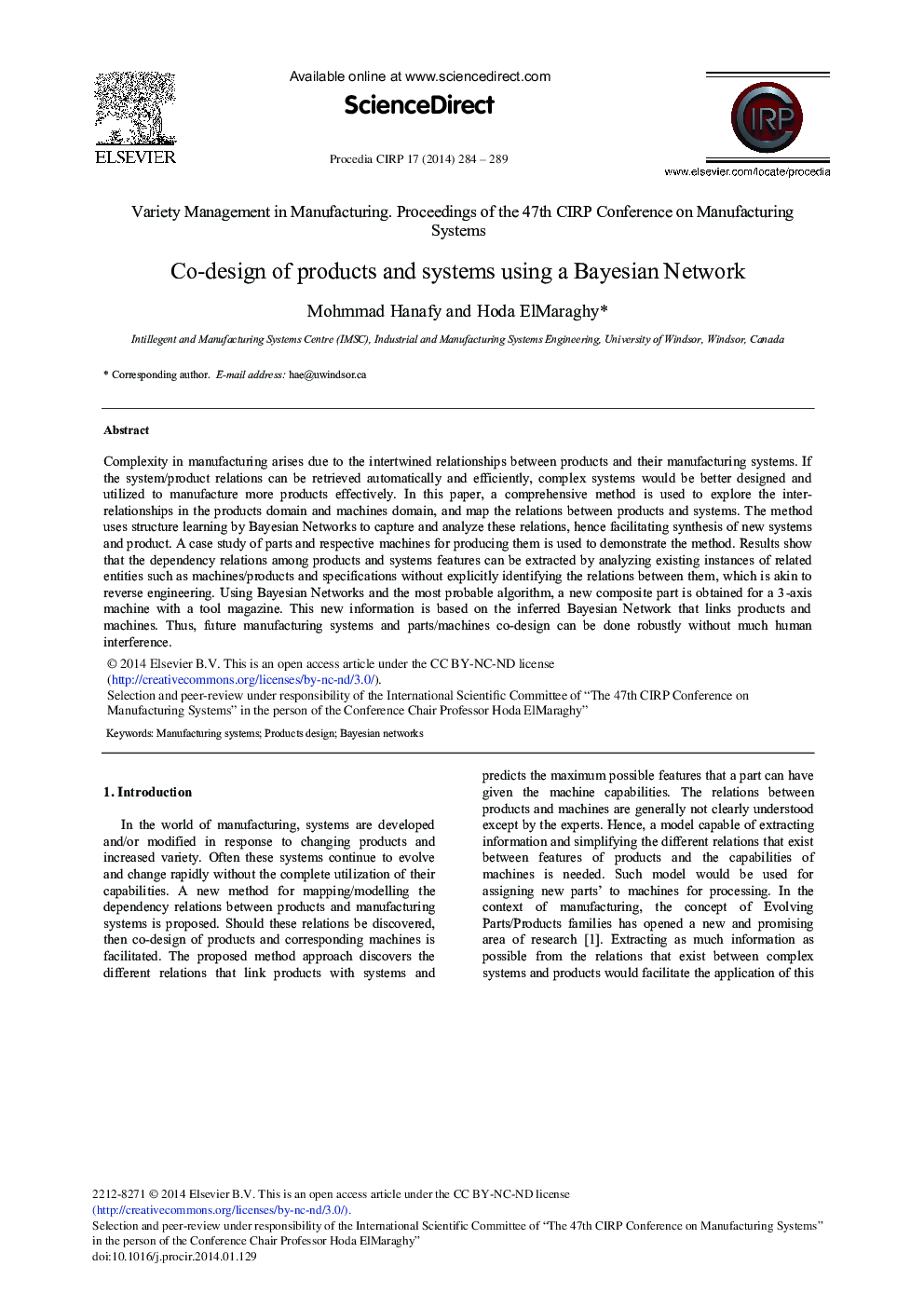| Article ID | Journal | Published Year | Pages | File Type |
|---|---|---|---|---|
| 1700387 | Procedia CIRP | 2014 | 6 Pages |
Complexity in manufacturing arises due to the intertwined relationships between products and their manufacturing systems. If the system/product relations can be retrieved automatically and efficiently, complex systems would be better designed and utilized to manufacture more products effectively. In this paper, a comprehensive method is used to explore the inter- relationships in the products domain and machines domain, and map the relations between products and systems. The method uses structure learning by Bayesian Networks to capture and analyze these relations, hence facilitating synthesis of new systems and product. A case study of parts and respective machines for producing them is used to demonstrate the method. Results show that the dependency relations among products and systems features can be extracted by analyzing existing instances of related entities such as machines/products and specifications without explicitly identifying the relations between them, which is akin to reverse engineering. Using Bayesian Networks and the most probable algorithm, a new composite part is obtained for a 3-axis machine with a tool magazine. This new information is based on the inferred Bayesian Network that links products and machines. Thus, future manufacturing systems and parts/machines co-design can be done robustly without much human interference.
